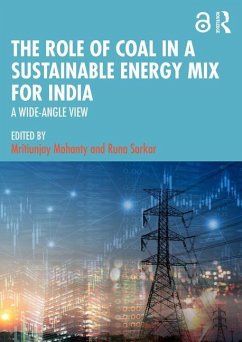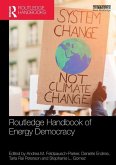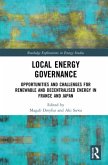As India switches away from a coal-based to a more sustainable energy use pattern, which pathway will it adopt? What is the nature of challenges that it will face, and who will be affected? Who will gain? This volume offers insights into the steps and challenges involved in this transition and addresses some urgent questions about the possible pathways for India's renewable energy generation.
Including contributions from researchers, policymakers, and practitioners, it draws on different disciplines, ranging from science and technology to economics and sociology, and situates the issue of low carbon transition within an interdisciplinary framework. India has committed to gradual decarbonisation of its economy. This book takes this as its starting point and uses a wide-angle lens, incorporating macro as well as micro views, to understand the possible next steps as well as trade-offs that will inevitably be posed. It incorporates the perspectives of all stakeholders ranging from central and state governments, public and private sector firms, on the one hand, to individuals and local communities, on the other, to explore their role in the transition, their interests, and how these will change and evolve.
This timely volume will be of interest to students and researchers of environmental studies, development studies, environmental economics, political studies, and Asian studies. It will also be useful to academics, practitioners, and policymakers working on issues related to climate change, sustainable development, energy policy and economics,and public policy.
Including contributions from researchers, policymakers, and practitioners, it draws on different disciplines, ranging from science and technology to economics and sociology, and situates the issue of low carbon transition within an interdisciplinary framework. India has committed to gradual decarbonisation of its economy. This book takes this as its starting point and uses a wide-angle lens, incorporating macro as well as micro views, to understand the possible next steps as well as trade-offs that will inevitably be posed. It incorporates the perspectives of all stakeholders ranging from central and state governments, public and private sector firms, on the one hand, to individuals and local communities, on the other, to explore their role in the transition, their interests, and how these will change and evolve.
This timely volume will be of interest to students and researchers of environmental studies, development studies, environmental economics, political studies, and Asian studies. It will also be useful to academics, practitioners, and policymakers working on issues related to climate change, sustainable development, energy policy and economics,and public policy.








